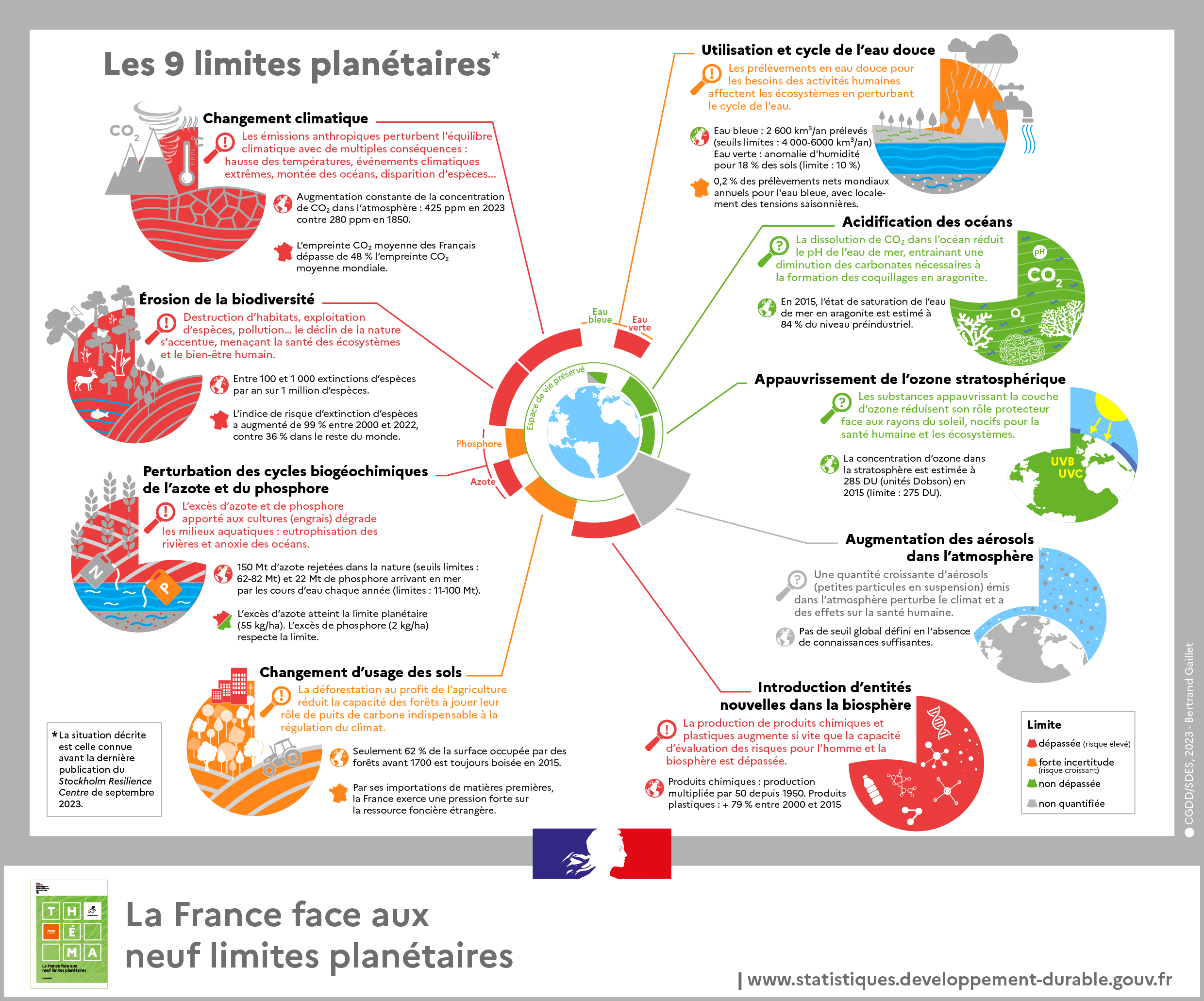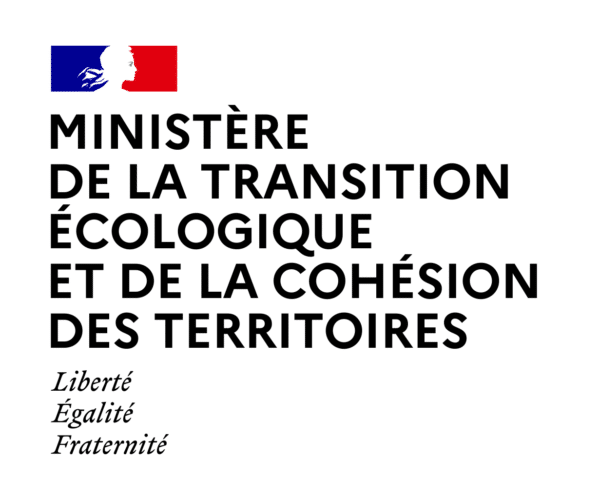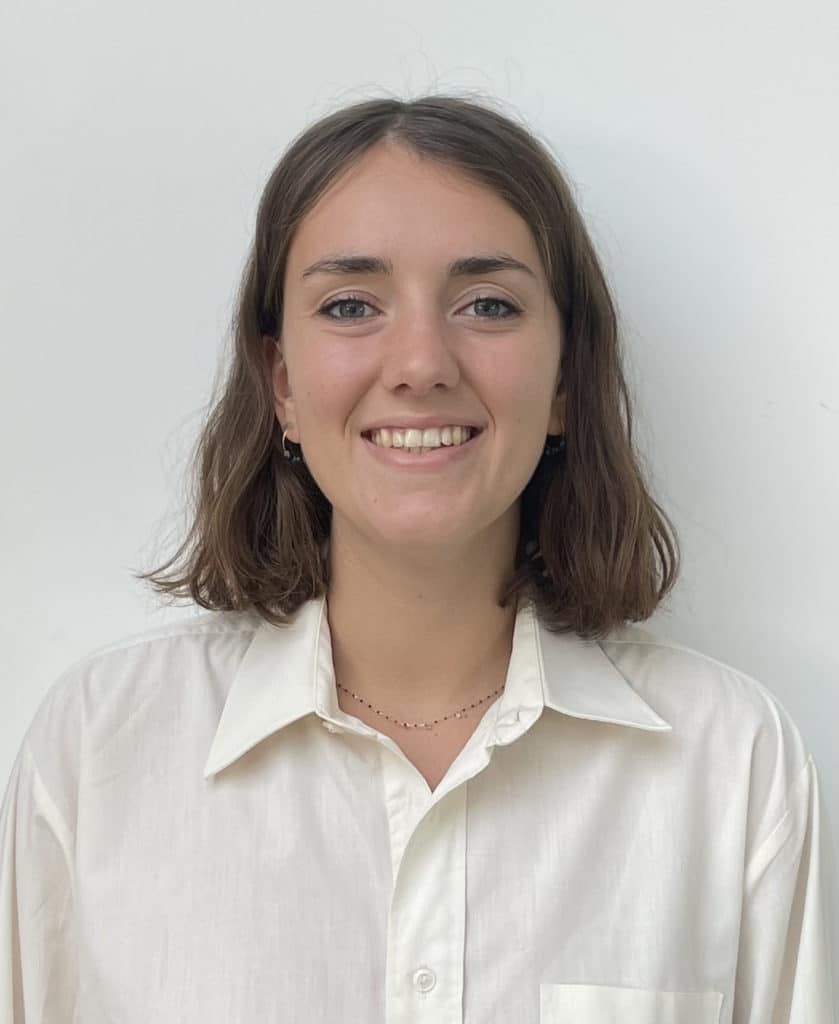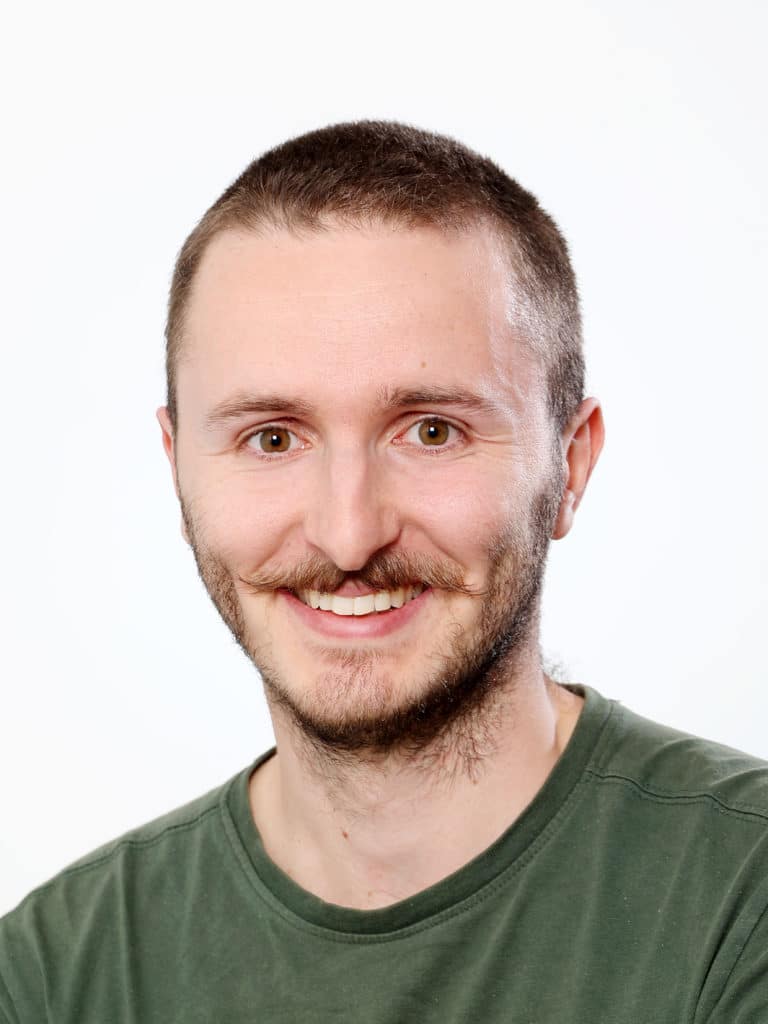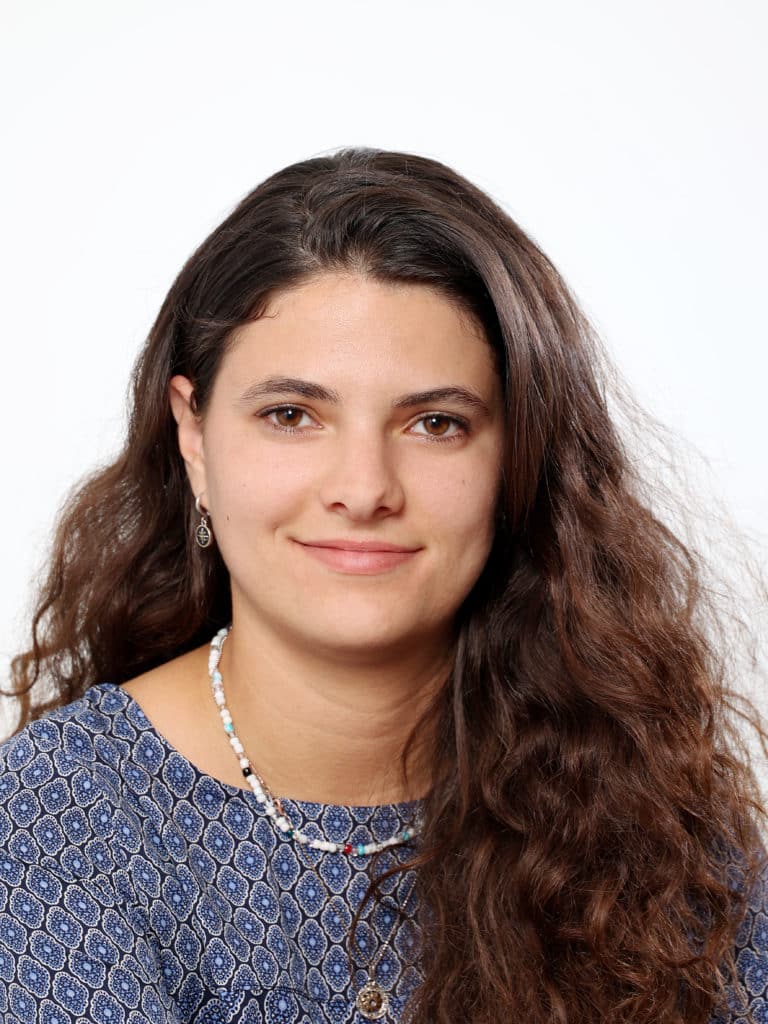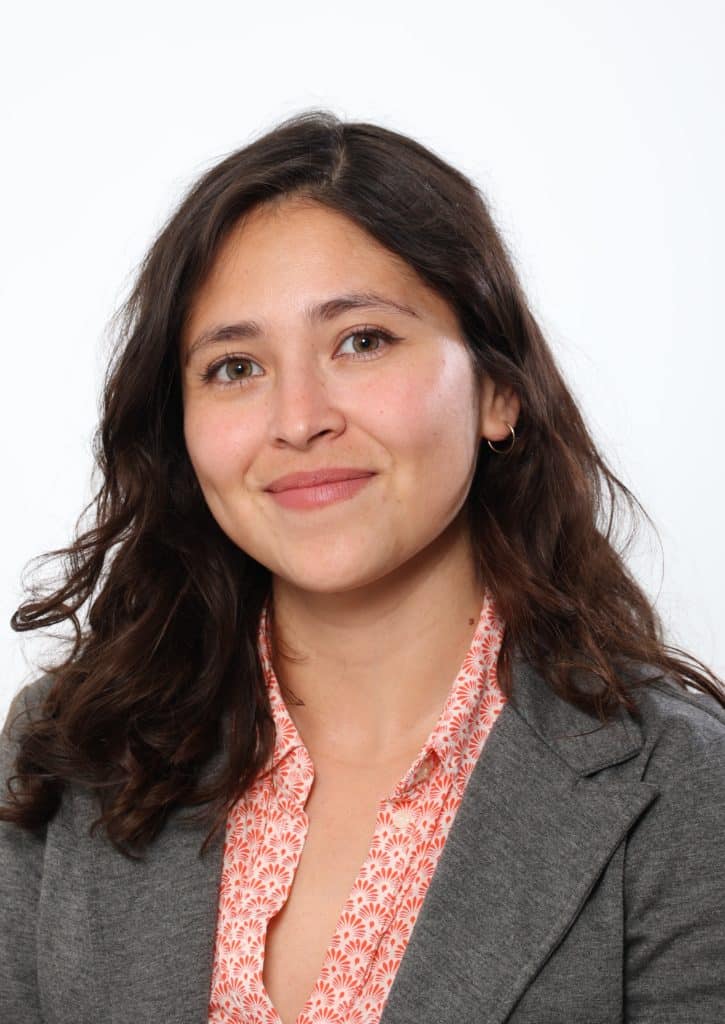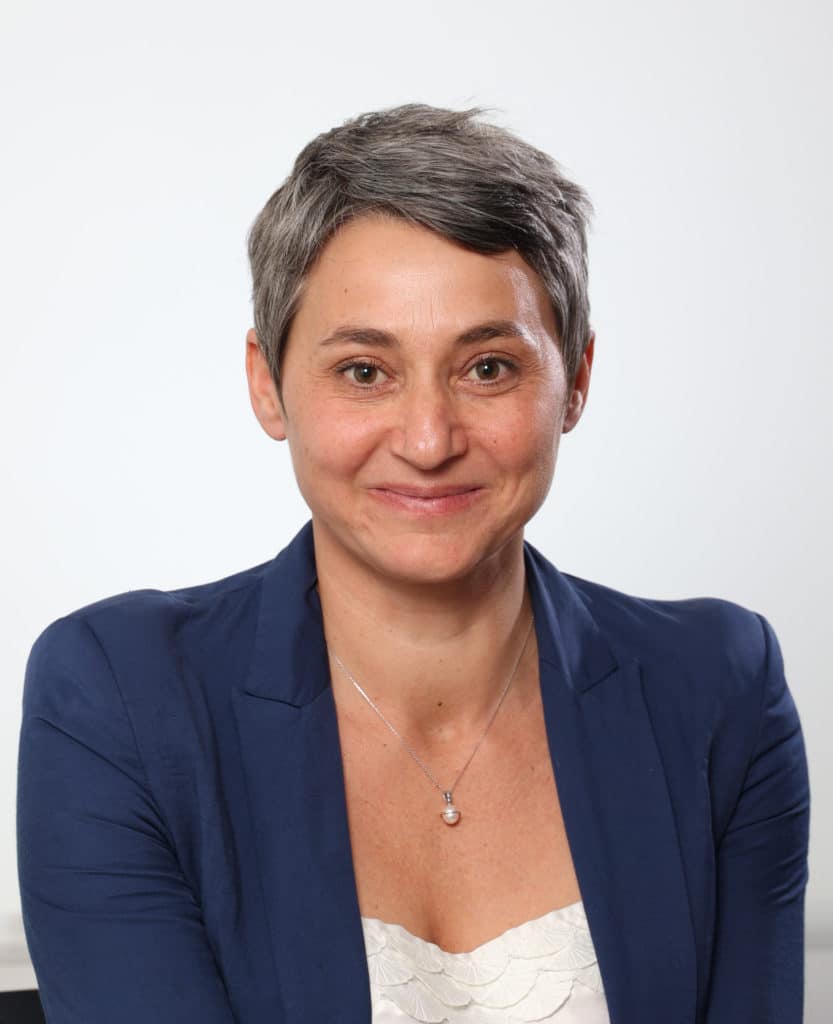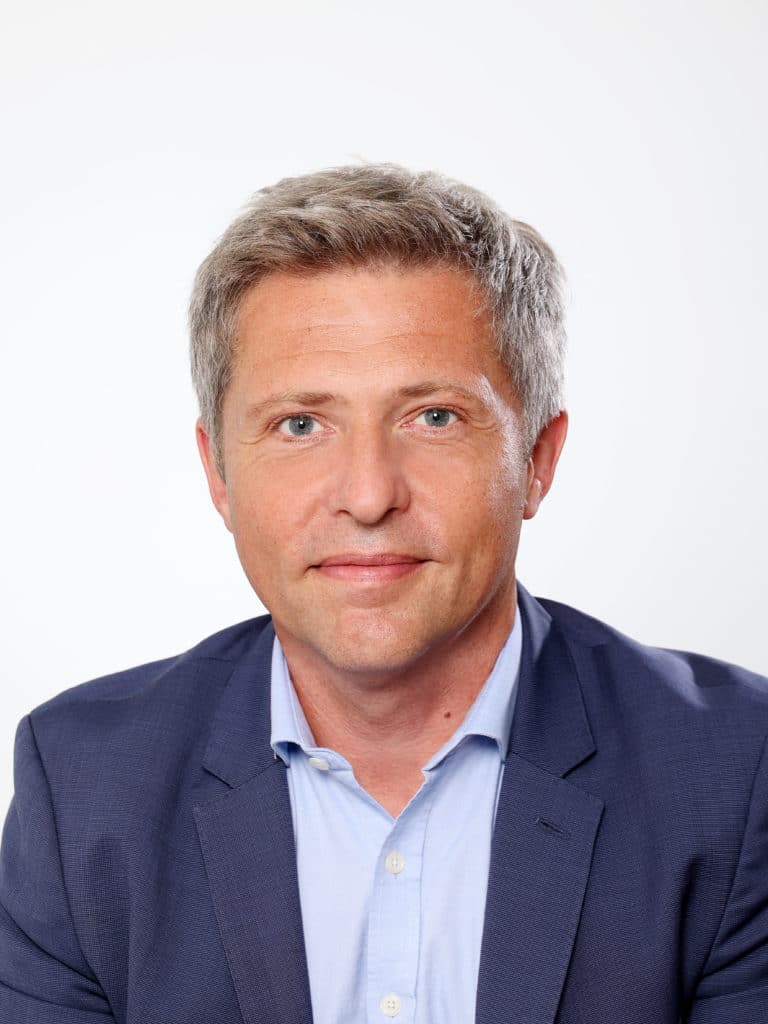Autre
La France face aux neuf limites planétaires
- Créativité
- Inclusion
- Résilience
- Sobriété
- Milieux naturels et aquatiques, biodiversité
- Ingénierie systémique
- Conduite du changement
En 2019, dans son rapport quadriennal sur l’état de l’environnement en France, le Commissariat général au développement durable (CGDD) a fait le choix d’utiliser pour la première fois le cadre d’analyse des limites planétaires pour élargir le diagnostic environnemental de la France au-delà de ses frontières.
Ce cadre d’analyse, proposé en 2009 par le Stockholm Resilience Centre (SRC), révisé en 2015 (Steffen et al.) puis en septembre 2023 (Richardson et al.), vise à définir un « espace de fonctionnement sûr pour l’humanité » qui repose sur l’évolution de neuf phénomènes complexes et interconnectés. Par la suite, les discussions suscitées par les propositions de la Convention citoyenne pour le climat ont révélé le besoin de revenir sur le concept de limites planétaires en l’explicitant davantage et en s’interrogeant sur ses utilisations possibles, notamment à d’autres échelles géographiques.
C’est à cet objectif que répond cette publication. Elle s’attache ainsi à répondre aux questions suivantes : à quelles problématiques renvoient les limites planétaires ? quels enjeux leur sont associés ? où en est-on au niveau mondial vis-à-vis de ces limites ? quelle est la responsabilité de la France dans le dépassement de ces limites ? quelles sont les mesures déjà mises en oeuvre pour éviter leur franchissement ou pour revenir en dessous de celles-ci ?
Pour l’illustrer, le CGDD a sollicité l’expertise de Natacha Gondran, professeure en évaluation environnementale et co-auteure de la publication Les limites planétaires, afin de présenter un panorama des utilisations possibles de ce cadre à l’échelle d’une entreprise ou d’un territoire, en collaboration avec l’agence d’urbanisme de la région stéphanoise Epures.
Précisions : Publication

